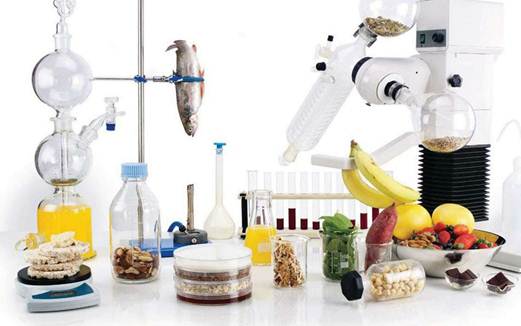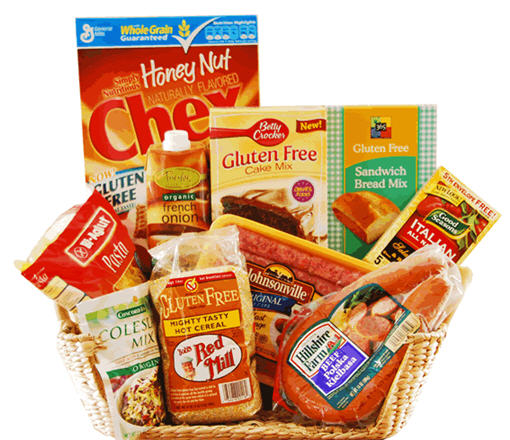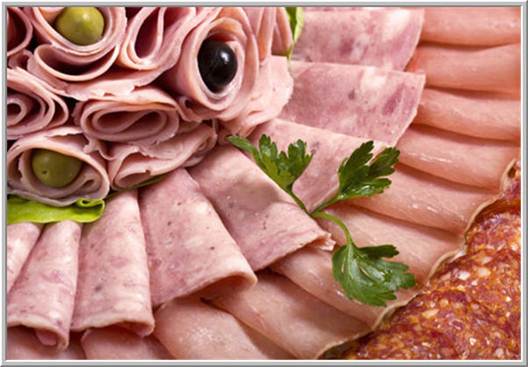Much of what we thought we knew about
a healthy diet is simply rubbish
Nuggets of nutritional knowledge or
junk-food science? It turns out that many popular beliefs about what we put on
our plates contain not even a kernel of truth. Here, we bust 10 of the top food
myths.

Top
10 Food
1. Going gluten free can magically melt off excess weight
As someone who treats obesity, Dr. Yoni
Freedhoff, medical director of Ottawa's Bariatric Medical Institute and an
assistant professor of family medicine at the University of Ottawa, says the
food myth he encounters most often is that "bread is evil and that eating
it will somehow, independently of its calories, cause weight gain."

Going
gluten free can magically melt off excess weight
Nurtured by the low-carb-diet craze, this
fallacy has been further fortified by the growing awareness of celiac disease
and gluten intolerance, and by books that blame our nations expanding
waistlines on wheat consumption. (Celiac disease is a condition in which eating
gluten—proteins found in wheat, barley, and rye—results in damage to the
intestinal lining, preventing proper absorption of nutrients, which in turn
leads to problems ranging from bloating to nutritional deficiencies. Gluten
intolerance is a sensitivity that causes digestive symptoms but no damage.)
True, some people who don't have celiac
disease shed weight after adopting a gluten-free diet, but that doesn't prove
wheat or gluten was responsible for packing on those pounds in the first place,
according to Rosie Schwartz, a Toronto registered dietitian and author of The
Enlightened Eater's Whole Foods Guide: Harvest the Power of Phyto Foods (Viking
Canada, 2003). Giving up gluten means cutting out many highly processed,
calorie-crammed, nutritionally empty foods, which—assuming you don't simply
swap them for celiac-friendly versions—itself aids in weight control.
Similarly, passing up the breadbasket at a restaurant reduces your calorie
intake, which, as we all know, is a key to weight management. But, because
diets high in whole grains such as wheat, barley, and rye have been linked with
a decreased risk for multiple health woes including Type 2 diabetes, Schwartz
recommends that, rather than ditching gluten, you choose nutrient-dense,
fibre-rich carbohydrates such as whole-grain pasta or bread, pairing them with
protein at meals and snacks. Not only will you avoid needlessly missing out on
the health benefits of whole grains, but the combination of fibre and protein
will make you feel full faster, and longer, than will eating plain white carbs,
thereby reducing the odds that you'll overindulge.
2. "Natural" deli meats are healthier than regular cold cuts.
Most deli meats (and other processed meats,
such as bacon and hot dogs) contain preservatives called nitrites, which have
been tentatively linked to colon cancer, and the so-called natural versions are
no exception; the only difference is that in the latter, those chemicals are
derived from cultured celery extract rather than synthesized in the lab. In
fact, an analysis performed for CBC's Marketplace reportedly found that
the nitrites in "natural" deli meats were chemically identical to
their "unnatural" counterparts.

"Natural"
deli meats are healthier than regular cold cuts.
Nitrites aside, there's no evidence natural
deli meats are nutritionally superior in other ways, notes Gloria Tsang, a
Vancouver registered dietitian and founding editor of the online nutrition
portal HealthCastle.com. "I don't see them containing less sodium
or fat," she notes. And while studies have linked consumption of processed
meats to an increased risk of developing colon cancer and Type 2 diabetes, it's
not clear whether the culprit is a single compound, such as salt, fat, or
nitrites, or some combination thereof (Salt has been implicated in gastric
cancer, for example.) What's more, after reviewing the available evidence, an
expert panel of the World Cancer Research Fund and the American Institute for
Cancer Research was unable to pinpoint a safe level of deli consumption with
respect to colon cancer risk.